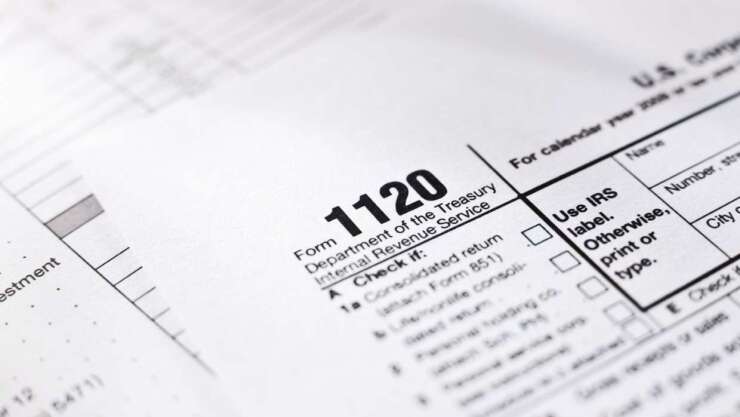Companies that don’t receive tax services from their auditing firms to avoid compromising auditor independence could end up paying more in taxes, at least temporarily, according to a new academic study.
The study found that companies that dismissed or substantially reduced their reliance on their audit firms as tax-service providers incurred substantial tax costs to avoid the perception of impaired auditor independence, according to the paper’s co-authors, Kirsten A. Cook of Texas Tech University, Kevin Kim of the University of Memphis, and Thomas C. Omer of the University of Nebraska-Lincoln.
These companies saw their effective tax rate, as reported on their financial statements, increase by a mean average of 1.36 percentage points in the following year and their actual cash payment of taxes go up 1.64 percentage points. In the 419 cases where tax-counseling auditors were dismissed or their tax services sharply curtailed (as revealed in a large corporate database), these rate increases amounted to an average tax increase per company of approximately $6.4 million in the amount owed and about $7.65 million in what was actually paid. The biggest losers were client companies that curtailed auditors with tax expertise (with high market share in this specialty); those companies’ next-year tax payouts swelled by an average of 4.53 percentage points.

The Sarbanes-Oxley Act of 2002, which came in response to accounting scandals of the early 2000s involving Enron, WorldCom and Arthur Andersen, prompted many companies to avoid getting tax and consulting services from their audit firms. In the years soon after the passage of SOX, the most likely reason for dropping or greatly curtailing auditors as tax providers was “promoting the appearance of auditor independence rather than obtaining higher-quality tax services,” according to the paper, which appears in the June/August issue of Accounting Horizons, a journal published quarterly by the American Accounting Association.
In the later period, in comparison, according to the researchers, “we conjecture that auditor independence was not a concern in these dismissal/decrease decisions.” In the later period, “companies did not experience the same unfavorable tax-avoidance results as companies in the earlier years,” they wrote. “Differing motivations for terminating or substantially reducing auditor-provided tax services result in differing tax-avoidance outcomes between those periods.” In contrast to the earlier period, the relationship between auditor dismissal/decrease and company tax expense wasn’t statistically significant in the later time span.
“Decoupling audit and tax-service provision and subsequently obtaining tax services from a new provider can result in decreased tax avoidance because the new service provider lacks familiarity with the client’s existing tax planning or does not have the expertise to generate new tax-avoidance opportunities,” according to the paper. “Even if the outgoing and incoming tax-service providers possess equal tax expertise, the incoming provider requires time to ascertain the client’s current tax planning and design/implement tax-avoidance activities to capitalize on any additional tax-avoidance opportunities.”
For the client companies involved, the extra tax burden turned out to be only temporary, limited to about a year. Earlier academic research, according to the paper, has provided “survey evidence from corporate tax directors that nearly 70 percent of corporate tax plans are alterable within one year and 40 percent are alterable within six months. If tax avoidance is alterable in such a short period, it is not surprising…that tax avoidance rebounded relatively quickly following the hiring of a new tax advisor.”
The European Union passed legislation in 2016 aimed at forcing companies to stop receiving services such as tax and consulting for their auditing firms, and regulators in the United Kingdom have made similar recommendations. The Securities and Exchange Commission and the Public Company Accounting Oversight Board have also encouraged audit firms to preserve auditor independence, objectivity and professional skepticism, but they are unlikely to follow Europe’s lead on banning the provision of tax services by audit firms..
“Our findings should be of interest to U.S. regulators such as the SEC and PCAOB as they monitor the effects of this new law in Europe and consider implementing additional reforms to limit the scope of auditor-provided tax services here in the U.S,” said the paper.
“U.S. regulators have adopted a wait-and-see attitude, monitoring whether the benefits of the mandate in Europe outweigh the costs,” said Cook in a statement. “Meanwhile, the Big Four accounting firms have issued implementation guidance for potentially affected clients, in case a similar regulatory regime is enacted over here.”





